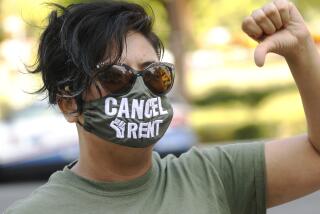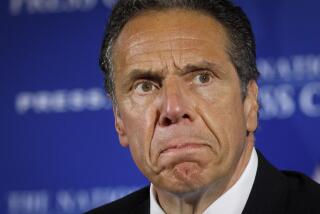Sense on Sexual Harassment
- Share via
In a scant, seven-page opinion, Justice Antonin Scalia on Wednesday announced a sensible new standard for sexual harassment. Writing for a unanimous U.S. Supreme Court, Scalia said the Civil Rights Act can extend to harassment between members of the same sex. His decision is a big step forward for fairness, even if it was one probably unintended by the drafters of that landmark 1964 law.
The case involved a damage claim by Joseph Oncale, a Louisiana man who quit his job on an offshore oil drilling platform after he was ridiculed, grabbed and threatened repeatedly in a shower by two male supervisors. A lower court had tossed out his case before trial, ruling that this form of harassment, no matter how offensive, was not covered by the Civil Rights Act. Scalia disagreed.
Conceding that Congress was not much concerned about same-sex harassment in 1964, he said that does not matter. The words of the law forbidding “discrimination because of sex,” Scalia wrote, must cover both men and women. Many lower courts, including California state courts, have upheld claims of same-sex harassment. The high court’s ruling is significant because it establishes a national standard for similar claims.
The decision revives Oncale’s suit yet draws a sensible line for lower courts. The high court cautioned that there is no “general civility code” in the law. Simple roughhousing among men--the football coach who playfully smacks a player’s behind--is not illegal, nor is flirtation between men and women, Scalia ruled.
At the same time, illegal harassment need not be “motivated by sexual desire.” But plaintiffs must prove they suffered discriminatory or “disadvantageous” treatment so “offensive as to alter the conditions of the victim’s employment.” This is a welcome ruling in a difficult area of the law.


